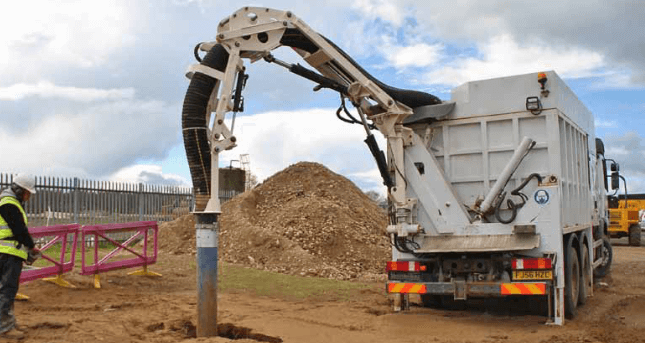Factors to Consider When Selecting a Vacuum Truck

Choosing the correct type of vacuum excavation truck is crucial for businesses in various industries, from waste management to construction. With many options available, selecting the perfect type can be overwhelming. By evaluating multiple essential criteria, you can guarantee that your investment aligns precisely with your needs and specifications when choosing a vehicle.
Purpose and Application
Before exploring the specifics of a vacuum truck, it’s essential to determine the vehicle’s primary purpose and intended application. Are you primarily dealing with liquid waste, dry materials, or both? By comprehending your unique needs, you can streamline your choices and guarantee the selection of this kind of truck precisely tailored to match your requirements.
Capacity and Size
When choosing a vacuum excavation truck, the capacity and size of its tank stand out as paramount factors demanding careful consideration. Its capacity will determine how much waste it can hold before requiring emptying. Assess your typical workload and consider factors such as frequency of use and the volume of waste generated to determine the appropriate tank size for your operations. Opting for a larger tank may increase upfront costs but can result in greater efficiency and productivity in the long run.
Vacuum System
The vacuum system is the heart of this kind of truck and plays a crucial role in its performance. Various vacuum systems are available, including positive displacement and fan-driven systems. Positive displacement systems are ideal for heavy-duty applications and can handle thick sludge and debris. On the other hand, fan-driven systems are more suitable for lighter materials and offer higher airflow rates. Consider the type of waste you will be dealing with and choose a vacuum system that best suits your requirements.
Power Source
Various sources, including diesel engines, gasoline engines, and hydraulic systems, can power these trucks. The power source selection hinges on variables like fuel accessibility, operational setting, and maintenance needs. Diesel engines are known for their durability and fuel efficiency, making them popular for heavy-duty applications. However, gasoline engines may be more suitable for smaller operations or environments with strict emissions regulations. Evaluate your specific needs and choose a power source that offers the right balance of performance and efficiency.
Maneuverability and Accessibility
Pay attention to vehicle dimensions, turning radius, and accessibility to loading and unloading areas. Smaller, more compact trucks may be better suited for urban environments or narrow job sites, while larger trucks offer greater capacity but may have limitations in terms of manoeuvrability. Assess your work environment and choose a size that allows for efficient operation without compromising accessibility.
See also: Spotless Solutions: The Art of Professional Cleaning Services
Maintenance and Support
Like other equipment, these trucks require regular maintenance to ensure optimal performance and longevity. When making your decision, take into account ease of maintenance, spare parts availability, and the manufacturer’s reputation for reliability and customer support. Opting for a reputable manufacturer known for quality and service can offer reassurance and reduce downtime caused by maintenance concerns. Additionally, inquire about warranty coverage and support services provided by the manufacturer or dealer to address potential problems.
Safety Features
When selecting this kind of truck, prioritise safety features to protect operators and the environment. Seek safety enhancements such as rollover protection systems, emergency shut-off valves, and backup alarms. Moreover, explore choices like rearview cameras and hazard lighting to boost visibility and awareness at the worksite. Prioritising safety not only ensures regulatory compliance but also cultivates a safety-focused culture, mitigating the likelihood of accidents and injuries within your organisation.
Choosing the right vacuum truck is a decision that should be taken with seriousness. By taking into account elements like your intended use, tank capacity, vacuum system type, power source, manoeuvrability, and maintenance support, you can pinpoint the ideal truck tailored precisely to your operational needs.







